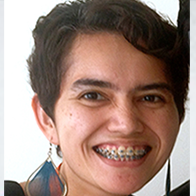One of my new year’s resolutions this year is to read one book a month. I admit that I am quite addicted to buying books, but I struggle to finish reading them. With this resolution, I hope to finish reading the backlog of books I bought last year, enrich my knowledge, and have one article monthly where I would be able to discuss books.
 I hope that this will be my tiny contribution to get more Malaysians to read more books, and further curb my own social media addiction; subsequently leading me to spend less time online and more time reading.
I hope that this will be my tiny contribution to get more Malaysians to read more books, and further curb my own social media addiction; subsequently leading me to spend less time online and more time reading.
Coincidentally, my book for January was “Chasing the Scream” by Johann Hari. This book unpacks the war on drugs as we know it – a topic close to my heart due to my own interest in HIV.
As a child of the 80s, I grew up with TV advertisements that extended the war on drugs propaganda through campaigns that lauded “Penagih Dadah Sampah Masyarakat” and “Dadah Musuh Negara”.
Suffice to say, growing up with privileges, such stigma is amplified in me every time I would chance across areas that are known to be home to drug addicts. These addicts, we are told, deserve no help and should be locked up.
When in reality, we all know of someone who was, or still is, using drugs. Some use legally prescribed drugs to manage an affliction while others are chasing the high that comes with drug use.
We just do not talk about it, and we do not admit it. We are prescribed really strong doses of drugs when we are in chronic pain, yet most of us do not become addicted to drugs.
Only 10% of drug users on average become addicts. As cited from Hari’s book, “the damaged 10% are the only people we ever see using drugs on the streets, and thus, the harmed 10% make up 100% of the official picture”.
The reason behind addiction, argued Hari, is stress and fear. That... "It is a natural human instinct to turn our fears into symbols, and destroy the symbols, in the hope that it will destroy the fear. It's hard to sit with a complex problem, such as the human urge to get intoxicated, and accept that it will always be with us, and will always cause some problems (as well as some pleasures). It is much more appealing to be told a different message – that it can be ended.”
The stories shared in the book are familiar. A history of poverty, rape, violence and oppression causing some of the population to turn to chemicals, i.e. drugs, to release themselves from their psychological pain.
Current drug policies involving prohibition and incarceration then cost these individuals their ability to find a job or have a meaningful career, relationships, and stability. These individuals then recede into a cycle of poverty, violence and oppression. Essentially, the system keeps the addicts being addicts.
"Addiction,” citing a drug user in Canada, “is a disease of loneliness."
Hari’s argument throughout the book is not a new one – what we have long been “treating” and focused on in the drug war is merely based on the "pharmaceutical theory of addiction".
We have not only failed to treat the root cause of addiction – poverty, psychological trauma caused by rape or violence, managing stress and depression – but instead, we have raised a “war cry” on drug users.
The book provided many examples through historical data and scientific evidence, as to why the war on drugs is a failed policy. It also provided sound, detailed arguments to decriminalising drugs, country models (Switzerland, Portugal and Uruguay) that we can emulate, and the recommendations on the baby steps we can all, as a society, take to challenge our own views to drug use and addiction.
Hari also managed to present these dry arguments into biographical accounts of key victims of the war on drugs.
The only boring account in the book was the discourse on regulating drug use. According to Hari, this could be the solution to the drug war: remove the drama and make drug use as boring as taking daily medication, complete with paying taxes. Hint: the latter increases government revenue.
While the book focuses on drug addiction, I cannot help but notice the near-philosophical observation of our society throughout.
I cite Bruce Alexander: "Human beings only become addicted when they cannot find anything better to live for and when they desperately need to fill the emptiness that threatens to destroy them. The need to fill an inner void is not limited to people who become drug addicts, but afflicts the vast majority of people of the late modern era, to a greater or lesser degree."
The cliché solution is to have more compassion in society. As we mitigate our own loneliness and disconnect in a superficially connected world, we just have to extend a hug, a call, or a helping hand to our friends and community.
Treat, not punish.
Here’s to a prosperous and compassionate Chinese New Year! – February 3, 2016.
* This is the personal opinion of the writer, organisation or publication and does not necessarily represent the views of The Malaysian Insider.


Comments
Please refrain from nicknames or comments of a racist, sexist, personal, vulgar or derogatory nature, or you may risk being blocked from commenting in our website. We encourage commenters to use their real names as their username. As comments are moderated, they may not appear immediately or even on the same day you posted them. We also reserve the right to delete off-topic comments